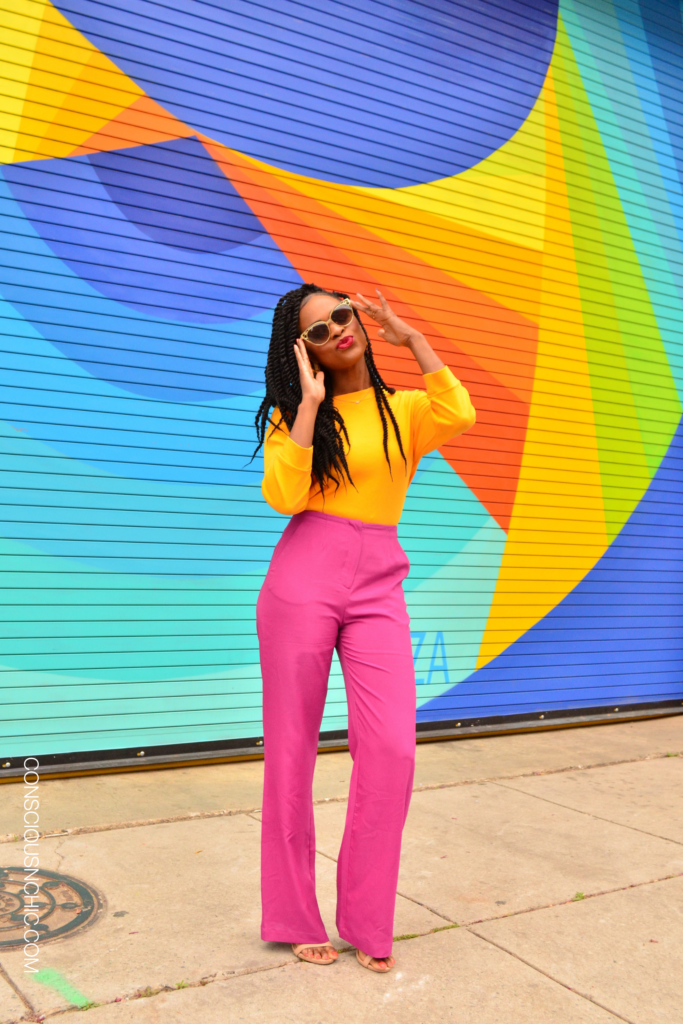I, like most fashion activists, love fashion, the craft, the imagination and the intricate details that go into making a garment. I also revel at it’s ability to make us dream. Dream of who we could be in the world if we only wore the right clothes as well as dream of the special days to come in our lives such as a wedding, maternity or red carpet event.
Indeed, long gone are the days of dressing purely for function. Today, being well-dressed is about self-expression, creativity, status and beauty but there’s an ugly side to the fashion industry. A side that the powers-that-be would rather we not know about. They create elaborate marketing campaigns, cast beautiful models with effortless waves and airbrush photos as smoke mirrors to distract us from what is truly going on behind the scenes.
Did you know?
- One in six people work in the global fashion industry,
- The wages of workers in garment factories can be as low as US$1-$3 a day,
- It would only cost an extra 1% of the retail price for living wages to be paid to the workers.
- Garment workers in developed countries can also be exploited,
- 80% of garment workers are women,
- Fast fashion brands release new clothes weekly and / or monthly by design to make you feel like your closet is always out of style,
- 80 billion pieces of clothing are consumed each year,
- It takes 7,000 liters of water to produce a pair of jeans,
- 10.5 million tons of clothing is sent to landfill yearly in the United States,
- One billion rabbits are killed yearly for their fur.
Faced with all of these issues, shopping according to your values can mean different things to different people. Here are the main four value-based choices consumers can make when it comes to how they buy clothing, shoes and accessories.
#1 Sustainable and eco-friendly: If you value the environment and want to buy products that are manufactured in an environmentally-friendly way from sourcing to packaging choose to support sustainable companies.
#2 Ethical: If you believe that garment workers should be treated with dignity, compensated fairly and in safe working conditions, shop for goods that have been ethically produced. This category can also include locally-made, artisan-made and handmade fashion. What is ethical fashion?
#3 Vegan, cruelty-free and Peta-approved: If you are concerned for the welfare of animals and would rather go naked than wear animal skin and animal bi-products invest in vegan, cruelty-free and Peta-approved products.
#4 Charitable: If there are causes near and dear to your heart, look for brands that support the same causes and donate a portion of their proceeds to it.
How to shop according to your values?
#1 Determine your values
This first step might sound simplistic but I would be naive to think that we are all at the same place in our journeys towards sustainable and ethical living. It is up to you to decide what matters to you most. My awareness started with the unethical treatment of people and grew from there. For someone else it may be all about the environment while another might cringe at the thought of wearing animal skin. Wherever you find yourself on the spectrum, start there and evolve from that point forward. This is not to give you carte blanche to not care about all the important issues surrounding the fashion industry but to give you the freedom to grow. Never silence your conscience and don’t be overwhelmed into inaction either. Choose and grow from there.
2. Do your research
Start with the brands you already shop and love. Find out what their manufacturing practices, charitable efforts, sustainability standards and animal cruelty policies are as well as their corporate responsibility commitment on their website. If this information is not readily available there, contact them via email or on social media. If you choose the social media route, I encourage you to join the Who Made My Clothes? campaign.
3. Expand your horizons
Once you’ve done your research you may realize to your dismay that a lot of the brands you support are shady or have well-crafted PR statements that don’t mean anything. What is a girl (or guy) to do? If this was 10 years ago, I would tell you to get into fetal position and cry. But thankfully, it’s a new day and the sustainable and ethical fashion industries are growing. Whatever garment or accessory category you are in the market for there’s a brand for that. They might not be as well-known as the brands you currently wear, that is why there are resources like the Good Trade and Conscious N Chic to help you.
4. Change your mind
Spoiler alert: shopping ethically may not fit your current budget or shopping habits. Those of you who know me know that I keep it real so I must warn you that you may need to rewire your mind. If your budget doesn’t meet your values, I suggest you use self-control and invest in quality pieces that are not only well-crafted but timeless in design. I don’t support fast fashion for many reasons beyond cheap labor. The thought of spending my hard-earned money on pieces that won’t last doesn’t sit well with me. It feels foolish to me, if I am completely transparent with you. Besides, most of us end up wearing the same 12-15 pieces all season anyway.
Shopping according to your values can be a daunting task but it is worth it. Go at your own pace and always remember to stay conscious and chic!






